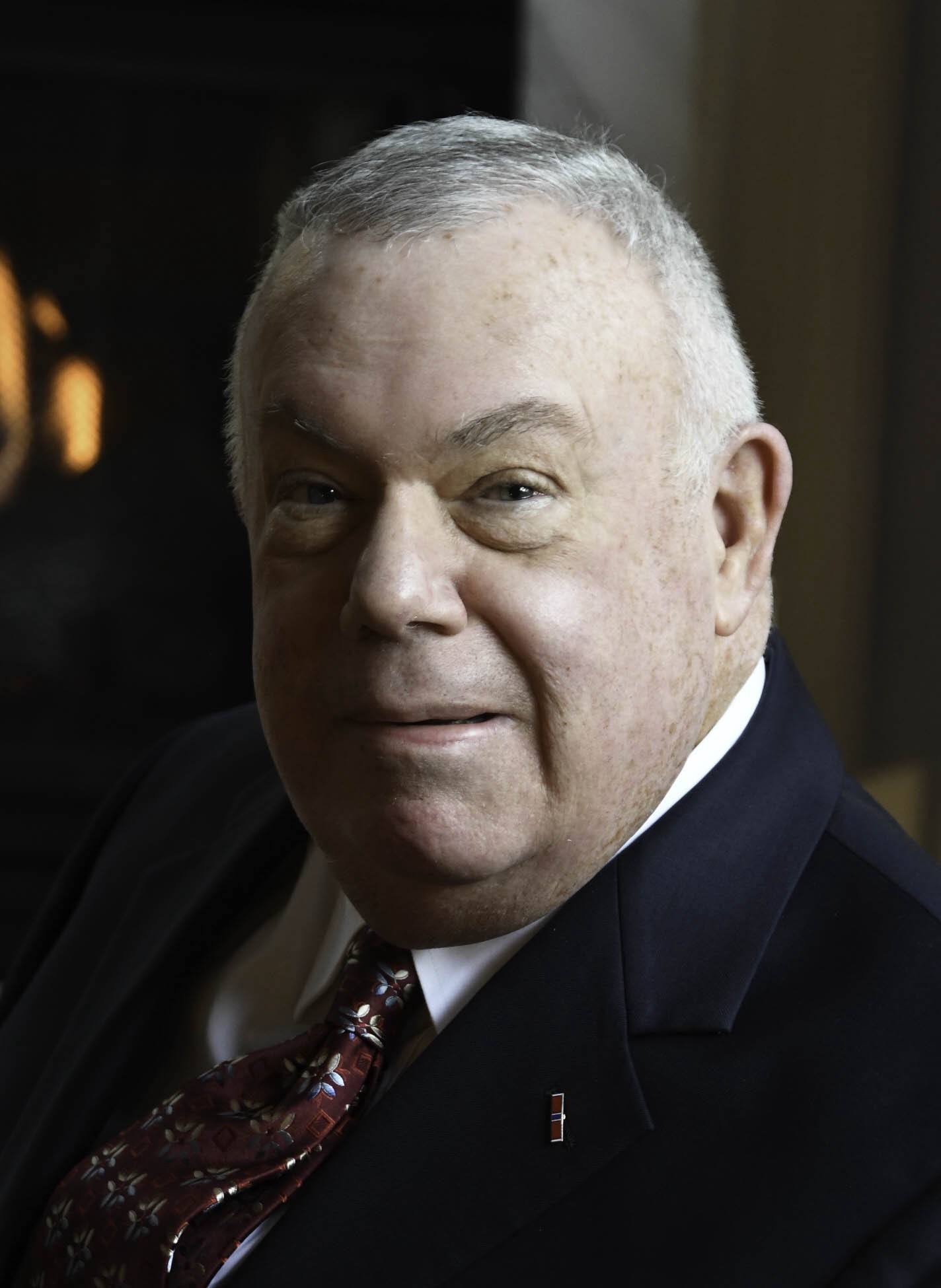As a part of my series about “Mental Health Champions” helping to normalize the focus on mental wellness, I had the pleasure to interview Paul A. Dillon is a Certified Management Consultant with more than 45 years of experience in the professional services industry. A U.S. Army Reserve veteran, he served in Vietnam as a 1st Lieutenant, and was awarded 2 Bronze Star Medals.
Paul is an Adjunct Instructor at the Sanford School of Public Policyat Duke University, where he created and teaches a course entitled, “PubPol 830.05 Special Topics in Management: Public Policy and Veterans: Policy Challenges and Best Practices”.
He created and co-taught the first course in the history of the University of Chicago on veterans’ issues at the Harris School of Public Policy in 2012–2013.
Paul’s articles and quotes on veterans’ issues have appeared in Forbes, HuffPost, Chicago Tribune, Crain’s Chicago Business, Arianna Huffington’s ThriveGlobal, Authority Magazine, We Are The Mighty, and USAA Magazine, among others. He is a sought after commentator on national veteran matters on numerous radio programs and podcasts, including on Westwood Oneand CBS Radio’s “Eye on Veterans”nationally broadcast programs.
Paul represents the nation’s veteran community on the Kennedy Forum, and is a member of the Leadership Council of the Kennedy Forum Illinois, where he represents the veteran community on erasing the stigma of mental illness, Post Traumatic Stress, Traumatic Brain Injury, and Substance Abuse among veterans, and ensuring mental health parity for those veterans who get their health care through the private sector.
He is the president and CEO of Dillon Consulting Services LLC, a U. S. Department of Veterans Affairs certified Service Disabled Veteran-Owned Small Business, based in Durham, NC and Chicago, IL. Paul is the creator of the concept for a veteran startup incubator in Chicago, called Bunker Labs, as well as the creator of the concept for a veteran entrepreneur support organization in North Carolina, called VetStart, which was recently rebranded as Bunker RDU.
Additionally, Paul has served as a subject matter expert on veterans issues for various conferences and symposia, most recently at conferences on The Many Futures of Work: Possibilities and Perils,and at the 2018 Annual Symposium — Southeast Conference on Military Education (SECOME), where he delivered a paper on “Veterans in the Workplace: Myths and Realities”.
Thank you so much for joining us! Can you tell us the “backstory” about what brought you to this specific career path?
I had the great honor and privilege of serving a nine year term as a trustee of The Chicago School of Professional Psychology, which is the oldest and largest independent, non-profit graduate school of psychology in the United States, serving some 4,500 graduate students in seven metropolitan locations throughout the country. I also had the privilege of serving a three year term as the Public Member and as a Commissioner on the national Commission for Case Manager Certification, which is the first and largest nationally accredited organization that certifies more than 35,000 case managers in the United States in the medical, psychological and social services.
In 2013, I began representing our nation’s veteran community with the Kennedy Forum, which is a national nonprofit organization that was created by former U.S. Representative Patrick J. Kennedy that same year to set a new standard for the future of healthcare in the United States.
The mission of the Kennedy Forum is to ”seek to unite the health care system, and rally the mental health community around a common set of principles: Fully implement the 2008 Parity law, bring business leaders and government agencies together to eliminate issues of stigma, work with providers to guarantee equal access to care, ensure that policymakers have the tools they need to craft better policy, and give consumers a way to understand their rights.”
In June of 2015, I represented veterans on the opening plenary session of the Kennedy Forum annual conference in Boston, MA on a panel entitled, “Building on Parity to Make Behavioral Health America’s Business: How Care for the Whole Person Can Improve Lives, Reduce Societal Costs, and Bring Greater Productivity”.
In November of 2015, I served as the panel moderator for a panel entitled, “How Can Veterans Lead the Way?”, for the Kennedy Forum Illinois 2nd Annual Forumin Chicago, IL.
And, in 2017, I served as moderator for a panel on “The Myths and Realities of Mental Health and Substance Use Disorder Among Veterans”for the Kennedy Forum Monthly “Mind Matters” Breakfast Series in Chicago, IL.
According to Mental Health America’s report,over 44 million Americans have a mental health condition. Yet there’s still a stigma about mental illness. Can you share a few reasons you think this is so?
I can best address this question from the standpoint of the military and veterans.
You have to understand the ethos of the warrior.
The code of the warrior that is instilled in every soldier, sailor, airman or Marine is: “Zero defects…no weaknesses…100% ready for duty, sir — or ma’am.” This is as it should be — for, despite what you may have heard to the contrary, the sole purpose of the Armed Forces of the United States is either to capture the enemy, or to kill them. This is precisely the attitude that you want in the people who are defending you.
But, here’s the problem.
To date, in many — but, not all — instances in the Armed Forces, mental illness, PTS, TBI, substance abuse, and the like have been viewed as shameful weaknesses…as moral failings…as defects not worthy of a warrior.
And, this attitude, unfortunately, can carry over to people who have left the service..our nation’s veterans.
Of course, we know, based upon empirically derived, a posteriori,data and analyses, that these pathologies are not weaknesses — they are not moral failings — they are not defects. They are diseases. They are diseases that no one should be ashamed of having…they are diseases just like cancer and diabetes are diseases. And, with proper treatment, these diseases can either be cured, or at least the symptoms alleviated.
Can you tell our readers about how you are helping to de-stigmatize the focus on mental wellness?
We need to BREAK THE SILENCE. We need to turn around the conversation in our military and veteran communities that no one should be ashamed of having these pathologies. We need to reinforce in our active duty military, their families, and in our veterans that it is the weak person who hides these diseases. It is the strong person…it is the courageous warrior, or veteran — who seeks help for these diseases, so as to not put their fellow troops, their buddies, their families, and their communities, in jeopardy. For, it takes courage to ask for help.
And, it is the work of the Kennedy Forum to break this silence in our civilian, military and veteran communities — to turn around this conversation on mental illness and related pathologies — from something to be ashamed of and hidden, to seeking treatment for these diseases that can be cured, or whose symptoms can be alleviated.
Was there a story behind why you decided to launch this initiative?
That’s a question that is better answered by Patrick Kennedy. My suggestion is that you read his book, A Common Struggle,published in 2015.
In your experience, what should a) individuals b) society, and c) the government do to better support people suffering from mental illness?
As noted in the Kennedy Forum’s website, “The Mental Health Parity and Addiction Equity Act of 2008 (MHPAEA or Parity Law) promised equity in the insurance coverage of mental health and substance use disorder care, but years later mental health parity is still not a reality and too many Americans continue to be denied care when they need it the most. To fulfill the promise of the Parity law, we must hold health insurance plans accountable to comply with the letter and spirit of the law.”
This is particularly important for veterans, since the reality is that most people transitioning out of the active duty military will get jobs in the civilian world, and, consequently, get their healthcare through their employer. Indeed, it is estimated the two-thirds of veterans receive their healthcare outside of the VA system. Parity also may be an important issue for National Guard troops and reservists, who qualify for military healthcare or VA benefits, only under certain conditions.
Consequently, it is important for veterans, and National Guard troops and reservists, to know their rights under the Parity law. And, it is equally important for those civilian providers that might treat mental illness, substance abuse, PTS, TBI and the like for veterans, in particular, to have some understanding of military customs and protocol.
What are your 6 strategies you use to promote your own wellbeing and mental wellness? Can you please give a story or example for each?
- Maintain a positive attitude. Realize that there are very few things in life that are irreversible, if they don’t work out as planned. Take the long view.
- Have an unrelenting curiosity about the world. Never stop learning. And, engage in regular vigorous physical exercise.
- Be grateful for the love and support of family and friends. And, return that love and support whenever and however I can.
- Balance action with reflection. “The unexamined life is not worth living”, Socrates said. (Sometimes, the quote is originally credited to Plato).
- Be a person of faith, understanding that all of mankind’s works should be “Ad Majorem Dei Gloriam” — for the greater glory of God.
- Realize that faith alone is not enough — that faith, without good works, is meaningless. All of us have a responsibility to “repair the world” to the extent that we can.
What are your favorite books, podcasts, or resources that inspire you to be a mental health champion?
I strongly encourage anyone interested in erasing the stigma of mental illness and ensuring mental health parity for veterans and non-veterans alike to review the sites of The Kennedy Forumand the Kennedy Forum Illinoisfor additional information and tools on these subjects.
I highly recommend Patrick Kennedy and Stephan Fried’s book, A Common Struggle, where Kennedy “details his personal and political battle with mental illness and addiction, exploring mental health care’s history in the country alongside his and every family’s private struggles.”
As for podcasts, I highly recommend the podcast, Headspace and Timing, which is devoted to veteran mental health issues.
Thank you so much for these insights! This was so inspiring!


